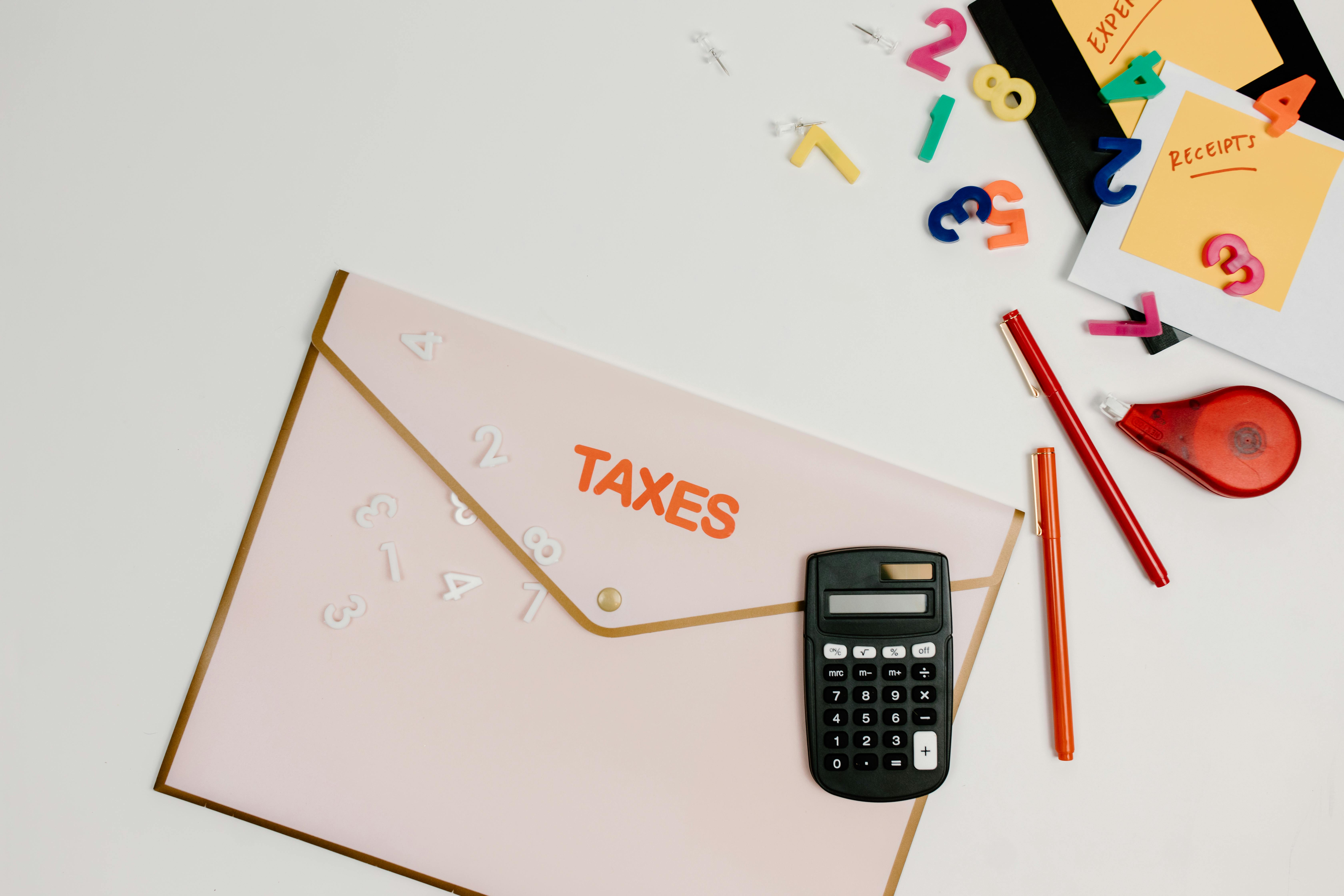Have you ever wondered how income tax affects you? Understanding income tax can seem overwhelming at first. However, grasping the basics can empower you to make informed financial decisions.
What is Income Tax?
Income tax is a mandatory financial charge imposed by the government on your earnings. This includes money you earn from various sources such as employment, self-employment, pensions, rental income, and even some benefits. While tax may not be the most exciting topic, being knowledgeable can help you navigate your finances better.
Types of Income Subject to Tax
You may not be aware of all the types of income that income tax applies to. Here’s a list of common sources of taxable income:
- Employment Income: Salaries, wages, bonuses, and commissions you receive from your job.
- Self-Employment Income: Profits earned from running your own business or providing freelance services.
- Pensions: Income from your retirement funds, which could include state pensions or private pensions.
- Rental Income: Money earned from renting out properties, with certain exceptions.
- Investment Income: Interest earned from savings accounts or dividends from shares.
Each of these income sources may have different tax implications. It’s worth understanding how each one works to accurately report your income.
Types of Income Not Subject to Tax
Not every penny you earn is taxable, which may come as a relief to you. Here are some examples of non-taxable income:
- Trading Allowance: The first £1,000 of self-employment income.
- Rental Income: If you earn less than £1,000 from renting out a property (unless you’re in the Rent a Room Scheme).
- ISA Earnings: Interest from tax-exempt savings accounts like Individual Savings Accounts (ISAs).
- Gambling Winnings: Money you win from premium bonds or the National Lottery.
Knowing what is exempt can significantly impact how much you pay in taxes each year.
Understanding Your Tax-Free Allowance
Most individuals in the UK benefit from a Personal Allowance, an amount of income you can earn before you start paying tax. This is set each year by the government and can fluctuate based on your income level.
What is a Personal Allowance?
The Personal Allowance allows you to earn a certain amount of income tax-free. For the tax year 2023/2024, this amount is typically set at £12,570. However, if your income exceeds £100,000, your allowance may gradually decrease, which is essential to factor into your financial planning.
| Income Range | Personal Allowance |
|---|---|
| Up to £100,000 | £12,570 |
| £100,001 to £125,140 | Reduced allowance |
| Above £125,140 | No allowance |
Tax Reliefs and Their Benefits
Tax relief can help you lower the amount of tax you pay. Various situations qualify for tax relief, such as making pension contributions or charitable donations. Tax relief typically works by reducing your taxable income, meaning you pay tax on a smaller amount.

Paying Income Tax
Understanding how to pay your income tax can relieve stress. The process may vary depending on your type of income: employee, self-employed, or others.
Employees and Income Tax
If you’re employed, your employer will usually handle your income tax through a system called Pay As You Earn (PAYE). This means your tax is automatically deducted from your salary before you receive it. It simplifies managing your finances since you don’t have to arrange payments yourself.
Self-Employed Individuals
If you’re self-employed, it’s your responsibility to ensure you pay your income tax. Typically, you would need to register for Self Assessment. This means keeping thorough records of your income and expenses each tax year and then filing your tax return to calculate how much you owe.
Additional Income Sources
If you have income from other sources, such as renting out a property or earning money through investments, make sure to declare this on your tax return as it may also be subject to tax.
Understanding Your Tax Code
Your tax code is essential for determining how much tax you pay. It tells your employer or pension provider how to calculate your tax deductions. If it’s incorrect, you may end up paying too much or too little tax.
How Tax Codes Work
A tax code (like 1257L) usually consists of a number and a letter. The number indicates how much tax-free income you can earn, and the letter signifies your tax status. For example, the letter “L” typically means you’re entitled to the standard tax-free Personal Allowance.
| Tax Code | Tax-Free Allowance | Explanation |
|---|---|---|
| 1257L | £12,570 | Standard tax allowance |
| 0T | £0 | Not entitled to allowance |
| BR | £0 | Basic rate only |
If you suspect your tax code is incorrect, it’s important to rectify it by contacting HMRC (Her Majesty’s Revenue and Customs).

Filing Your Income Tax Return
Keeping track of your income tax return requirements can seem complicated, but it doesn’t have to be. Here’s everything you need to know about filing your return.
When to File
If you’re self-employed or have additional untaxed income, you are required to file a Self Assessment tax return. The deadline for online tax returns is typically January 31st following the end of the tax year on April 5th.
How to File
Filing can be completed online through the HMRC website, or you can choose to submit a paper return. When filing, ensure you include all income sources and eligible expenses. Be meticulous and keep reliable records to simplify the process.
What Happens If You Don’t File
Failing to submit your tax return on time can result in penalties. The penalty system includes initial charges and ongoing fines if payment is persistently overdue. Hence, it’s best to stay proactive.
Income Tax Rates for 2023/2024
Different levels of income are taxed at different rates. Understanding these rates can help you plan your finances strategically.
Basic Rate Tax
The basic rate of income tax is currently set at 20%. This applies to earnings above the Personal Allowance threshold and up to a certain limit, approximately £50,270 for the tax year 2023/2024.
Higher Rate Tax
Once your income exceeds £50,270, you enter the higher rate tax band, where income is subjected to a rate of 40%. This also means you need to be diligent about your finances, ensuring you’re compliant with tax regulations.
Additional Rate Tax
If your income exceeds £150,000, you fall into the additional rate tax bracket, which has an income tax rate of 45%. This tier indicates a higher level of responsibility when it comes to your taxes.
| Income Level | Tax Rate |
|---|---|
| Up to £12,570 | 0% |
| £12,571 to £50,270 | 20% |
| £50,271 to £150,000 | 40% |
| Over £150,000 | 45% |

Tax Credits and Benefits
The world of taxation often intertwines with various benefits and credits. Being aware of these can significantly affect your finances.
Child Tax Credit
If you’re responsible for children under 16, you may qualify for Child Tax Credit. This can boost your financial support for raising kids.
Working Tax Credit
Working Tax Credit is designed to provide financial assistance if you work a certain number of hours per week and meet other criteria. This can help supplement your income.
Universal Credit
Universal Credit has replaced various other benefits and tax credits, simplifying the support system for individuals with low income. If you’re eligible, it could be a crucial resource for you.
Benefits and Allowances That Are Tax-Free
Not all benefits and allowances you receive are taxable. Being aware of these can have a positive impact on your financial planning.
Tax-Free Benefits From Employment
Some job-related benefits are tax-free. These benefits might include childcare vouchers, cycle-to-work schemes, and workplace nursery schemes.
Pensions Contributions Tax Relief
If you contribute to a pension scheme, you may be eligible for tax relief on your contributions, which effectively boosts your pension savings.
Common Questions about Income Tax
It’s natural to have questions about such an important topic. Here are some frequently asked questions that may provide additional clarity.
What happens if I miss the deadline for filing my tax return?
Missing the deadline can result in penalties, but you can minimize issues by submitting your return as soon as you realize your mistake.
Can I reduce my tax bill?
Yes, by leveraging tax reliefs, allowances, and contributions to pension schemes, you can lower your taxable income and thus your tax bill.
Will my income tax change if I get a pay raise?
Yes, a pay raise may place you in a higher tax bracket, thus increasing the percentage of tax you owe on your earnings above the Personal Allowance.
Conclusion
Understanding income tax might feel overwhelming at first, but grasping the basics equips you with vital financial knowledge. From recognizing what income is taxable to understanding your Personal Allowance and tax rates, you’re setting yourself up for a more informed financial future.
By being proactive and knowledgeable about your tax obligations, you can enhance your financial literacy and even discover ways to minimize your tax liability. Remember, keeping accurate records and staying up to date with changes in tax law can help you navigate this aspect of your finances successfully.
Income tax may be a necessity, but with the right information, it can be much more manageable!

